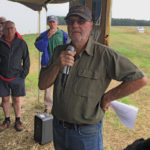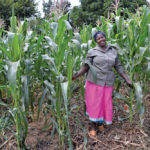
Tag Archives Conservation Agriculture

Sustaining hope: Conservation agriculture making gains in Ethiopia
Norway partners with the Canadian Foodgrains Bank to continue to support east-African farmers

Soil degradation a costly global issue
About a third of the world’s soil is degraded, which has economic and food security implications

Carman event serves up common ground on soil health practices
Canadian and African agronomists shared perspectives on conservation agriculture at a recent Canadian Foodgrains Bank forum

Degraded soils cost farmers billions annually
Yet soil care remains a low priority for policy-makers as well as farmers

It’s time to make soil great again
Continuing to lose topsoil will make it harder to feed a growing population

Smarter farming could cut hunger in drought-hit Southern Africa — researchers
Too few resources are available to educate the continent’s farmers about potential solutions to their problems

African smallholders are adopting conservation agriculture techniques
When you’re subsisting on three-quarters of an acre, increasing maize production from 32 kg a year to 990 kg is a life-changing event

FBC editorial chief wins major international awards

Study defines role of organic ag in feeding the world
Numerous studies point to the environmental benefits
Women’s 2015 conference focus on healthy soil
The Winkler event was well attended November 15 to 17




